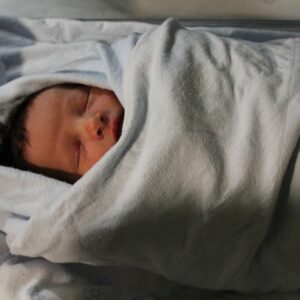Sleep Regression in Children: Signs, Causes, and Tips

Your child has been sleeping well since she was born, and you have been thankful that you did not have to go through the sleep problems you had with the older child. All of a sudden, your baby\’s sleep pattern then changes without warning. It is frustrating because it is crossing into the second week, and you are wondering if your baby is sick or not adequately fed. Sleep regression in children causes exhaustion because if your baby is not sleeping well, it means everyone else and most especially the mother is lacking sleep too.
What is sleep regression in children?
Sleep regression in a child is a period that usually lasts between three to six weeks in which the child experiences a setback in sleeping well, especially one who was sleeping well earlier. The child starts waking at short intervals at night, having short or no naps for no apparent or explainable reasons.
You might be looking for answers for why your infant or toddler is losing sleep. I can understand because this frequent waking up is exhausting. Though all children are not the same, sleep regression is common in children. It\’s just that every child doesn\’t suffer sleep regression at the same stage.
Sleep Regression Ages in Children
There are certain ages when children experience sleep regression.
4-months sleep regression:
Sleep regression experienced at this age usually becomes permanent changes to their sleep patterns. Typically, at four months, your baby is sleeping longer at night or through the night, but when sleep regression sets in, she begins to have several short periods of sleep with fussiness and short naps.
Related Article: Newborn Sleep Schedule: Birth to 3 months
8-months sleep regression:
Sleep regression at the age of 8 months is associated with the developmental milestones that occur with this age. Learning to crawl, stand, walk, building, and forming language skills are typical milestone babies of this age experience. Some are teething, and some are resting for a bit from teething. All these and all the brain and internal development going on are what would cause a sleep regression
9-months sleep regression:
Mostly a continuation of eight months sleeps setbacks. Some children don\’t experience sleep regression until they are nine months. Your baby is okay if she hasn\’t experienced a sleep regression yet.
10-months sleep regression
Regression at ten months is a continuation of eight and nine months of sleep regression. Like most other regressions, it should pass away after six weeks, and they can return to their normal sleep and napping schedule.
11-months sleep regression:
Sleep regression at eleven months isn\’t so common but still occurs. Babies who experience sleep regression at this age skip their naps or experience short naps, generally between napping between ten to twenty minutes. I know nap time for a child is very important for a mother because that is when you get to do some things without worrying that your child is getting up to something again. But treat this phase like others because it will pass within a short period. Babies are not yet developmentally ready to give up their three naps a day at eleven months until they are almost two years.
15-months sleep regression:
Sleep regression at this stage is mostly due to developmental milestones and transitions. Your baby may be transitioning to one nap and learning to walk and speak multiple words could be interrupting her sleep. Although there is no three to six weeks duration at this stage of sleep regression, you should treat it as one. You will also start learning to schedule your child\’s sleep now to help her deal with the changes occurring to her sleep pattern.
18-months sleep regression
We expect babies to be sleeping through the night at this age. Some babies, for some reason, suffer sleep regression at eighteen months. For some, it could be because they are bringing out their molars at this time.
Babies developing molars can be painful and uncomfortable and could be affecting their sleep. Some children decide that night time is when they want to wake, throw a tantrum, scream, and play, and you can\’t seem to settle them back to sleep.
2-years sleep regression
A 2-year-old, sleep regression can be attributed to several factors that could be disrupting his sleep. At two years, there are several transitions taking place in the life of your toddler. Potty training, a new sibling taking all the attention, moving her into her bed, separation anxiety, and possible nightmares could be causing your child\’s sleep regression.
While you might notice that at two, your toddler stops napping altogether, and you are probably asking, \’when do toddlers stop napping?\” What is happening is likely a sleep regression. It might not be permanent. Most toddlers don\’t stop napping until they are between three to four years, but there two-year-old that give up napping completely. You should try helping your 2-year-old to nap again because a 2-year-old needs rest at least once a day and ten to twelve hours of sleep.
Tips for handling sleep regression
- Add more feeding. Your baby might sleep longer if she feeds better. But don\’t be too disappointed if you feed your baby more, and she wakes up thirty minutes later to feed, it will soon pass.
- Don\’t introduce your baby to a habit that isn\’t good for you both in the long run while trying to comfort your little one. For example, if you have weaned your child from the pacifier, don\’t let exhaustion and frustration make you return to it.
- You can introduce activities and games that will enable your toddler to exhaust all his energy; This can make him sleep longer.
- To prevent being too stressed, ask for help from persons you know would be willing to assist in taking care of your child while you rest.
- If you need to introduce an earlier bedtime in your baby\’s schedule, please try it.
- For a toddler, sleep training her might be the way to help her begin to sleep better.








